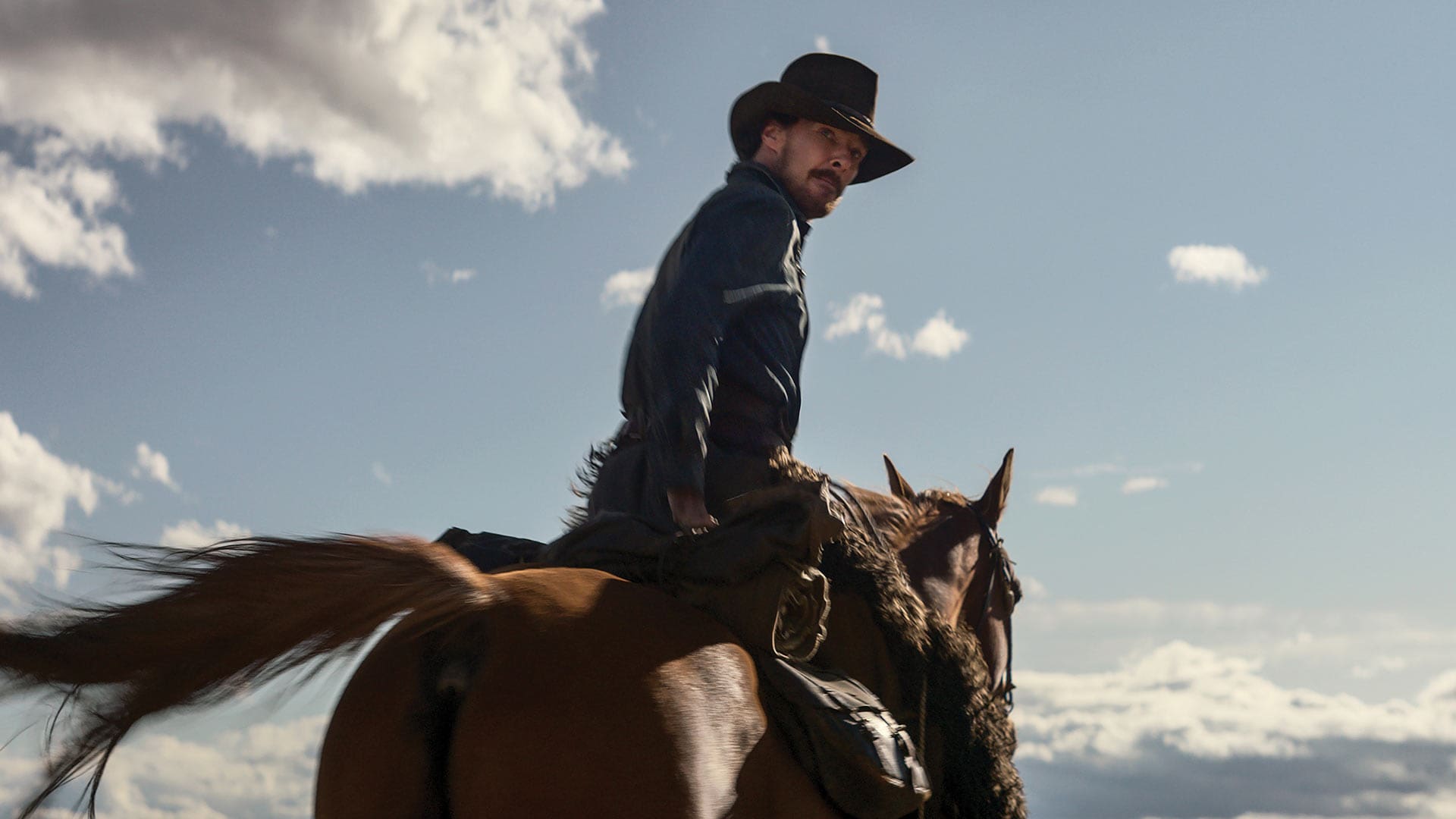The Power of Benedict
Actors nowadays, to mainstream audiences, can easily get mixed-up or confused. We can dispose of those thespians like they’re products. There’s more out there on the artistic ether, so why waste time fully devoting ourselves to one specific one. ‘Have you guys seen the film with such-and-such?’ we sometimes ask our movie-buff friends. ‘Ya know, they’ve been in…that good film…’
There are only a handful of actors that we can’t forget about, however. They have that ‘power of the legend’. They’ll never be disposable and they will certainly live forever. The actors have such recognisable faces, or recognisable names. Take Sir Ian McKellen (legend), or Tom Cruise (legend). Matthew McConoughey (legend), Jessica Chastain (legend) or Dame Judi Dench (legend). We all know them straight away—they’re like old friends, just popping in for a little chat and a cuppa tea. An actor whose talent, face and name has always been recognisable to legions of fans is the man, the myth, the legend: Benedict Cumberbatch.
I mean, no surprise there, the Oscar buzz this season is humming his name—screaming it from the rooftops even. With his outstanding performance as Phil Burbank in Jane Campion’s Power of the Dog, every movie watcher around will be able to recognise him immediately.
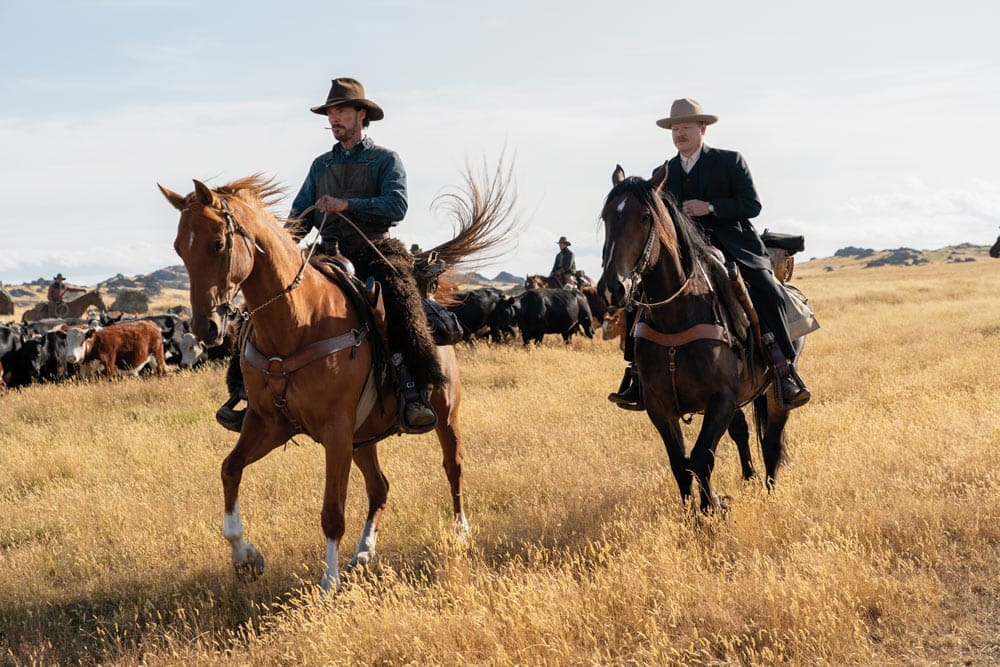
No surprise he’s so good; Cumberbatch was born to an ample acting stock. Both his parents, Timothy Carlton and Wanda Ventham, are actors, having had long, glowing careers in television and on stage.
It was from a young age that Benedict had always had a passion for the arts, gracing the boards for the first time in primary school, starring in the humble Nativity play. Humorously, he was quite the little diva on stage, getting constantly frustrated by the other players when they didn’t hit their marks or dropped their dialogue.
“[I was a] very bossy Joseph…” Cumberbatch recalled in an interview with London Theatre in 2010, with a sly tongue-in-cheek humour to his tone. “Apparently I pushed Mary offstage because she was taking too long. Actresses, eh…”
As well as acting as Joseph at Brambletye School from age eight, Cumberbatch also found a passion for rugby and visual arts. His sights, though, were tunnel-visioned, firmly set on becoming an actor. It must’ve been him harbouring the character of the earthly father to Jesus Christ that did it. Hallelujah. Boys that age want to be famous football players, or astronauts, but not Benedict. In true parental fashion, both Timothy and Wanda were concerned by this. They had both experienced how tough it was to make a living on an actor’s salary. Benedict was still in elementary; they just wanted to broaden his horizons to show him ‘his options’. Parents, am I right? Always spoiling the fun.
After Benedict left primary school, Timothy and Wanda ‘scrimped and saved’ as jobbing actors to secure a spot for their son at Harrow School—distinguished alumni being the likes of Lord Byron, Winston Churchill, Richard Curtis and James Blunt, to name but a few. Very prestigious and well-to-do. Especially seeing as it was £34,590-a-year. Yikes. The expectation, I guess, would’ve been that Benedict would leave Harrow as a budding-wannabe-lawyer or some Nobel Prize-winning scientist, most certainly not an actor.
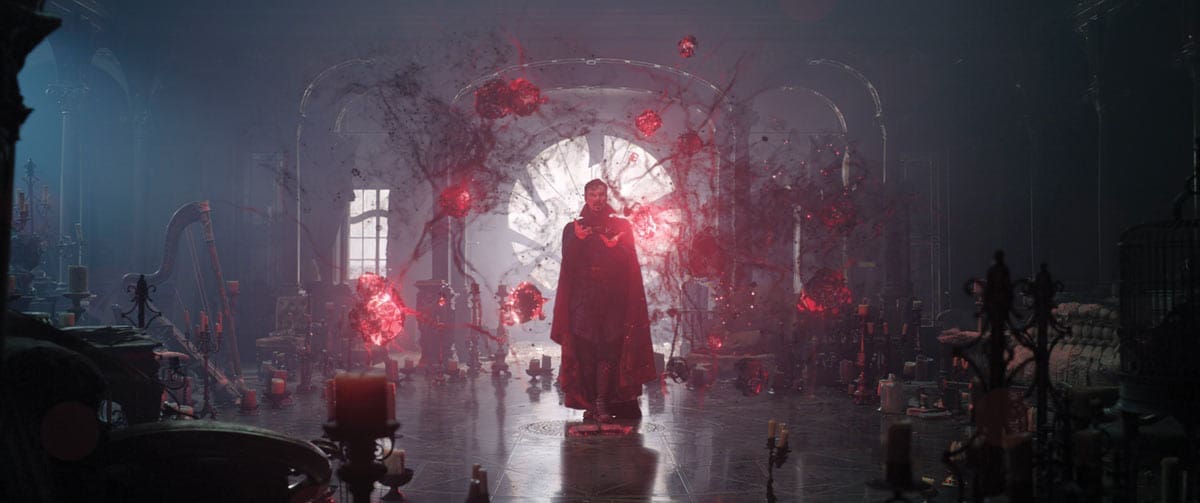
It was his drama teacher at the school, Mr. Martin Tyrell, who spotted the actor’s obvious talents and passion. Cumberbatch was born to act. He auditioned before Tyrell for the character of ‘Saucy French Maid’ in a farce as a teenager.
“Even as a 13-year-old,” Tyrell recounted to the UK’s Radio Times in 2015, “he was obviously an outstanding actor—a combination of intuition and intellect. It’s probably once in a lifetime that you find a boy actor as magnificent as this…It was a small part, involving a feather duster for about 10 minutes, but even then in rehearsal he was strikingly mature.”
Tyrell did also, reportedly, warn Benedict—just as his parents did—about what a ‘tough business’ the acting world is. He had been warned. But just as any young creative knows, when you’re told ‘no’, you want it that much more. So Benedict went, guns ablaze, stamping his signature first mark on the Harrow stage. Benedict played Titania in Shakespeare’s A Midsummer Night’s Dream with a rapturous response.
As your typical growing lad, he still loved getting his knees muddy on the rugby pitch, and had a penchant as being a bit of a ladies man. During an interview with Radio Times on the subject, he explained about the confusion he faced from his peers.
“There’s that chap from the rugby pitch;” he said, “Takes his tackle low and doesn’t complain when he comes out of it badly. And oh, look, there he is wearing a wig and prancing around being Titania, Queen of the Fairies. I covered all bases.”
Covering basis he certainly did, and the young actor wasn’t phased at all by that warning from Mr. Tyrell. He went on to graduate from Harrow, but only just.
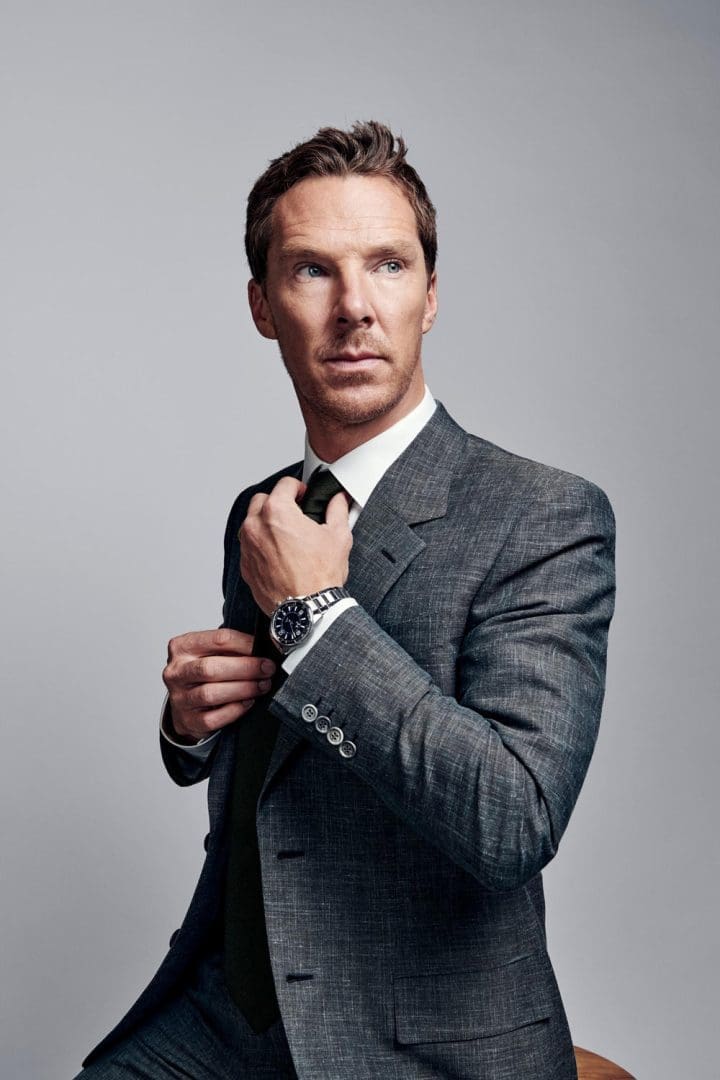
“I did sort of blow my GCSEs out of the water,” he told Metro magazine in 2013. “I couldn’t believe it and neither could my teachers. There was a lot of pressure on me to achieve an Oxbridge ‘level of brilliance’ at A-levels. Adolescence came late and I discovered girls, pot and all sorts of other things, so I got a bit lazy.”
After graduating from college, Benedict decided to take a gap year to Darjeeling in India to teach English to Tibetan monks. A stark change to his upbringing. He was taught in India to live simply, to give thanks to human nature and the earth, and to not take everything so seriously. Lots of laughter, reportedly, was had. At the monastery, he was blessed with many important life lessons that he still uses to this day. He got very little sleep every night and ate mainly porridge and ‘a little stew’.
“They were amazingly warm, intelligent, humorous people,” Cumberbatch told the independent, non-profit Buddhist foundation, Lion’s Roar in 2016. “Hard to teach English to. I built a blackboard, which no previous teachers seem to have done. With 12 monks in a room, with an age range of about eight to 40, that’s quite important. The reward–punishment thing of sweets or no sweets, or game or no game, worked quite well. But they taught me a lot more than I could possibly ever teach them.”
At just age 19, we can put good money on the fact that he had no idea that he would be channelling these mystical experiences 20 years later when he gets signed to play Marvel Comics’ Doctor Strange, a man who too finds his inner truth at a monastery in Nepal.
Upon returning to the UK, Benedict decided to pick up right where he left off. The stage and screen were calling to him. He’d had such a life-enhancing experience in India, that really opened his eyes to what life could offer, so Cumberbatch refused to let his dreams fade away. He immediately enrolled himself into Victoria University of Manchester where he studied drama and went on, years later, to train at the London Academy of Music and Dramatic Art. He graduated as part of the LAMDA class of 2000 with an MA in classical acting. And that, ladies and gents, is when the floodgates opened for Benedict.
Upon his graduation from LAMDA, Cumberbatch landed his first acting job in the TV British period-drama, Heartbeat, where he played a guest role. He scoured the TV landscape, getting small guest spots in Tipping the Velvet, Cambridge Spies and Fortysomething too. At the same time, he was scoring major parts on stage (his preferred medium, needless to say) at acclaimed playhouses such as the Regent Park Open Air, the Royal Court and the Royal National Theatre in London. In 2004, Benedict landed his first major part portraying Stephen Hawking in BBC’s straight-to-TV film, Hawking. It’s a film of the famed theoretical physicist battling the first stages of motor neuron disease. That role, thanks to his remarkable talent, won him a BAFTA TV Award for Best Actor and the Best Performance nod at the Golden Nymph for Television Films. On stage too, he was nominated for an Olivier Award for his supporting role as George Tesman in Almeida Theatre’s 2005 rendition of Henrik Ibsen’s Hedda Gabler. Because of his performance, the show was transferred from its original home to the Duke of York’s Theatre to the West End. Numerous awards and accolades were flooding into this man’s life just a mere decade after living on the bare basics in India with Buddhist monks. It would take actors more than a decade to achieve what he had in such a small space of time. This trajectory surely shows the power of this legend.
It was in 2005 however, that things took a turn for the worst. He landed a role as protagonist, Edmund Talbot, in the three-part BBC miniseries, To the Ends of the Earth, based on William Golding’s darkly-comic trilogy and travelled to St. Lucia, on the northwest coast of South Africa, to start filming. It was after a routine scuba-diving lesson that he and two fellow cast-members blew a tyre as they were driving down a long stretch of road, notorious for its criminal activity. The hijackers pounced, telling them all to ‘put your hands on your head’, and ‘to stop looking at us’ before frisking them for guns or drugs. The hijackers tied the actors up by their own shoelaces, and made them crouch—execution-style—before bundling the three into a truck and driving along a dirt road. When the gang stopped the car, Benedict was in full panic-mode, trying to reason with the drivers. Instead he was thrown into the boot.
“I just tried to explain to them: ‘I will die, possibly have a fit, and it will be a problem for you’”, he recollected to the UK’s MailOnline in 2012. “‘I will be a dead Englishman in your car. Not good.’”
After shutting the boot on Cumberbatch and deliberating together, the hijackers decided to let him go, tying him back-to-back with Denise Black (co-star and ex-Coronation Street starlet) and driving away.
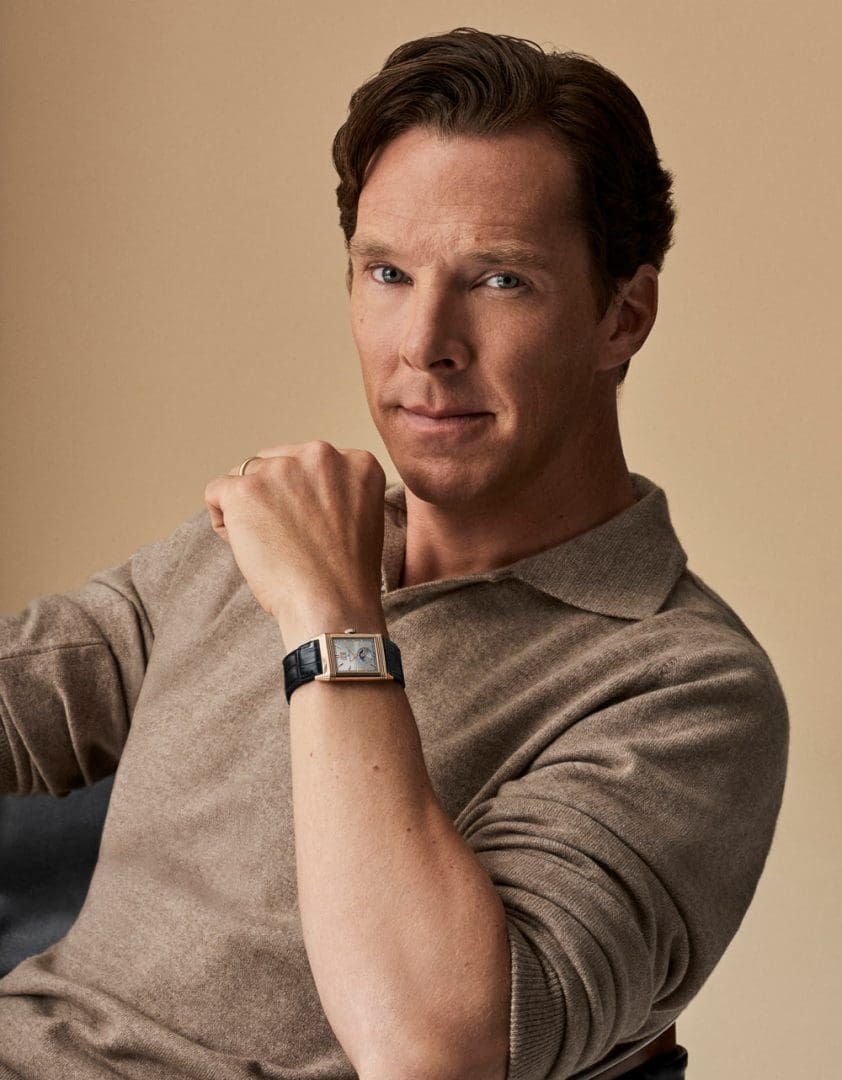
In true Cumberbatch style, he went on to receive rave reviews and a Monte-Carlo Television Festival Award for Best Performance by an Actor in the series. Legend. Completely unscathed too. The Guardian wrote of the show, “The performances [in To the Ends of the Earth] are superb…The best TV drama of the year by a nautical mile”. That’s very much Cumberbatch’s style. The power of the legend. Even after being hijacked and left-for-dead in South Africa, he still gets the job done, with more awards to add to his resume.
Upon returning to the UK (like when he returned from India all those years ago), the roles picked up again. In 2006, Cumberbatch wrapped his gums around his first role in a film. It was to play British parliamentarian William Pitt the Younger in Michael Apted’s drama, Amazing Grace. By playing Will (you guessed it, dear Reader) he garnered yet another nomination for the British Film Critic Circle ‘British Breakthrough Award’.
2007 was a milestone year in many ways for the actor. He was cast in the role of Paul Marshall, the quite dull (and very creepy) heir to a chocolate family fortune and dear friend to Leon Tallis. Cumberbatch’s portrayal of this very dislikable character still sends shivers up the spine of so many watchers. Paul Marshall (spoilers ahead) is the real monster who rapes poor 15-year-old Lola, setting the characters on a wild goose-chase to find the wrongly-convicted Robbie (played by James McAvoy). This was one of Cumberbatch’s key performances, as it showed off how seamlessly the actor can play a character that can, chameleon-like, blend into the background and successfully lurk like some ungodly presence in the shadows.
His performance in Atonement caught the eye of many a critic, and also the eyes of Sue Vertue and Dr. Who aficionado Stephan Moffat (who Benedict, funnily enough, idolises so much). They cast him as the main protagonist, ‘consulting detective’ Sherlock Holmes in BBC One’s Sherlock. Everyone knows of this ground-breaking show. You must be living under a very big rock if you’ve never heard about it. It was said (by the Independent) to be the most watched television show of the 21st century in the UK at the time. Ever since Line of Duty came along, it kept that status for many, many years. Sherlock has won multiple awards, including Emmy’s, BAFTA’s, Critics Choice Awards and many more, all fronted by our boy Benedict. Solving various mysteries in modern-day London alongside his flatmate and friend, Dr. John Watson (played by Martin Freeman), Sherlock’s exceptional powers of observation and dazzling intellect get clouded by his personal values. This is an extraordinary piece of television, and Cumberbatch is perfect in it. It really allowed him to play around with the cleverness of a character, whilst also adding a shine to the man that, up until then, he hadn’t seen on screen before. And this was the role that really made him a house-hold name, for sure.
Fun fact: both Timothy and Wanda actually starred alongside their son in BBC One’s Sherlock as the protagonist’s mum and dad.
“There’s a great charge you get from playing him,” Benedict told The Guardian in 2010, “because of the volume of words in your head and the speed of thought—you really have to make your connections incredibly fast. He is one step ahead of the audience, and of anyone around him with normal intellect. They can’t quite fathom where his leaps are taking him. Zip zip zip.”
It’s also fun to note that Benedict is a distant relative of Sir Arthur Conan Doyle, the original author of the super-detective.
A year after meeting the success of Sherlock, Cumberbatch tread the boards again in the 2011 Royal National Theatre adaptation of Mary Shelley’s Frankenstein, in which he alternated with actor Jonny Lee Miller in the roles of Victor Frankenstein and his creature. He thus achieved the ‘Triple Crown of London Theatre’ with an Olivier Award, Evening Standard Award and Critics Circle Award. He rounded out 2011 with roles in two high-profile films, Steven Spielberg’s War Horse and a big-screen adaptation of author John le Carré’s Tinker, Tailor, Soldier, Spy. Calm down, Cumberbatch. You’re making all the other legends look bad!
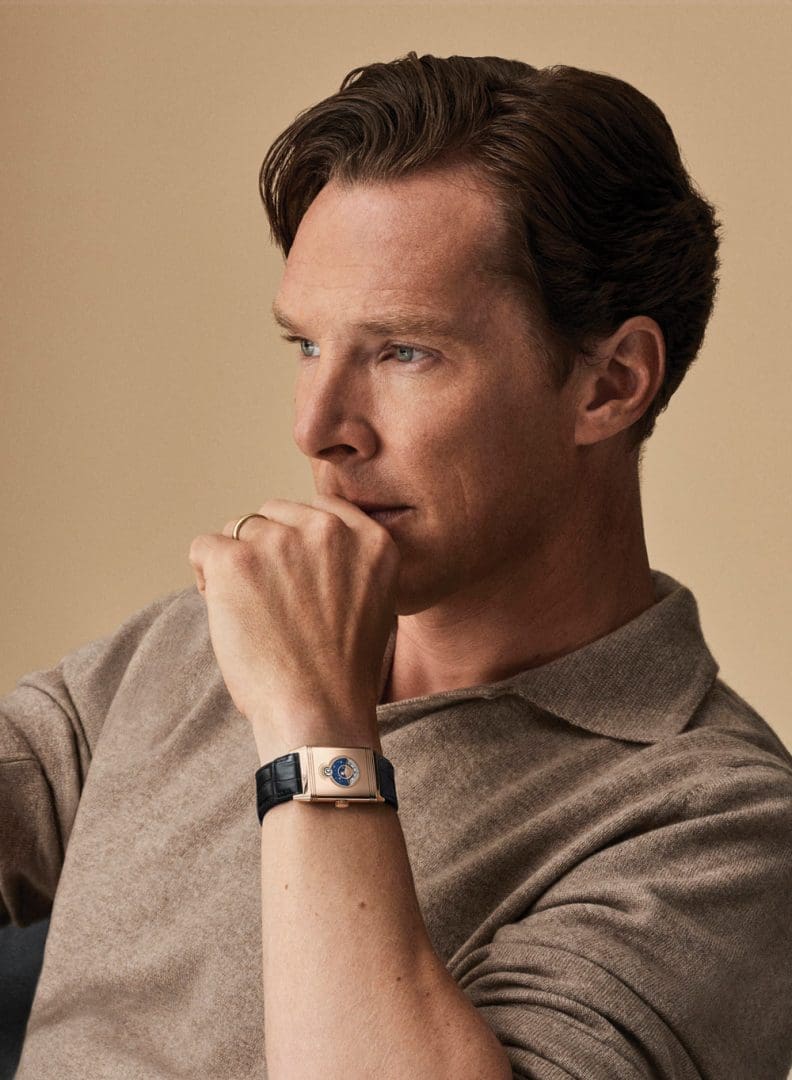
I could reel off his next successes, but we all know them already, I’m guessing. His next role of note was right on our front door step, when he leant his posh growl to the computer-animated Smaug the dragon for Peter Jackson’s The Hobbit: The Desolation of Smaug. He was inspired by how to play the character by how his father, Timothy, imitated Smaug when reading him The Hobbit as a child. As a journalist, it would be remiss of me not to make connections between the genius of Sherlock Holmes and the sly, intelligent arrogance of Smaug, but I won’t. Both characters, played very well in every aspect, have their own, unique and startling merits.
“He’s just legendary in the world of The Hobbit, and he is the ultimate dragon. He’s an extraordinary creation in the book. And what we’ve all managed to achieve—especially the people at WETA, the post-production and sound facilities in Wellington—is extraordinary.”
New Zealanders take their hat off to you, Mr. Cumberbatch.
In 2016, Cumberbatch then starred as Doctor Strange, entering the Marvel Comics superhero, to which he played a neurosurgeon who, after a car crash that led to a journey of healing, discovers the hidden world of magic and alternate dimensions. Reportedly, the film’s mysticism resonated with Cumberbatch, for whom spirituality has been important since he spent his gap year teaching English at a Tibetan Buddhist monastery in Darjeeling. He will be reprising the role of Doctor Strange in Doctor Strange in the Multiverse of Madness, set to be released in May this year. Get excited.
It’s in his latest Oscar-tipped role as Phil Burbank in Jane Campion’s adaptation of Thomas Savage’s 1967 novel The Power of the Dog, that has really got audiences around the globe wowed and so excited about this year’s Oscar season. This is Campion’s first film to emerge in more than a decade, and with her utterly stunning work in The Piano in 2003, us audiences have been tapping their toes excitedly, wanting perfection. And holy-moley did we get perfection alright. Over its first five days of release on Netflix last year, it was streamed by around 1.4 million people worldwide. It’s also good to note that Benedict, reportedly, is far more a dog person than a cat person, which is amusing.
Set to win big at this years Oscars, The Power of the Dog, set in Montana in 1925, tells of wealthy ranger George (played by Jesse Plemons) who brings home his wife, Rose (Kirsten Dunst) and her son Peter (Kodi Smit-McPhee) much to brother Phil’s dismay.
The Burbank ranch, large and glitzy, is where the film is primarily set. New Zealand audiences may notice that the rugged hills of Campion’s 1925 Montana have a look about it that could be almost recognisable. The jagged hills and mountains could seem—maybe, at a guess—like the Canterbury Plains, or somewhere near Otago. The Burbank household is situated in this captivating landscape. The house is Eastern-style, with working electricity, running water and space outside for the area’s few cars. The Burbank’s have money, and George and Phil are at the reins of this family-owned business to keep that cowboy ethos alive. George, always seemingly dressed in businessman attire, hosting a positive attitude, seems to be the goody-good of the siblings, whereas Phil seems more rotten-to-the-core than fresh Montana apple.
Phil Burbank, to put it lightly, is brilliantly smart yet twistingly cruel. On-the-surface, Phil is a typical always-a-tough-guy Wild West misogynist. He rides the buck of his own bronco. He smokes roll-your-own cigarettes, barely bathes, picks at his twangy banjo from time-to-time and casually castrates bull calves with his bare hands. Yet he harbours a deep secret through the film, leaving the audience perplexed and (sometimes) confused by his multiple layers.
Filmed in New Zealand during COVID lockdown in 2020, Benedict Cumberbatch gave his all in his performance. He turned into a full-on method-actor for this role. Though staying at a lavish $3,000-a-night estate in Hawke’s Bay whilst shooting, Cumberbatch stayed in character between takes, and barely bathed, to keep that Phil Burbank stink about him. Benedict got rid of his ‘people-pleasing’ mentality (which, as a warm-blooded Englishman, would be very hard to do), swam naked in rivers and lathered himself in mud. He smoked copious amounts of roll-your-owns without the filter—he gave himself nicotine poisoning three times whilst filming. Legend. The film is beautifully crafted too, with Campion’s signature detail and professionalism given to every shot, every angle and each beam of light. The sound score composition even, wonderfully done, was headed by Radiohead guitarist and personal friend of Benedict’s, Johnny Greenwood.
‘I really had to go the full distance,” Benedict explained on filming The Power of the Dog, “because it’s such an opportunity, and I think my primary goal was just to make the experience match the expectation. Both for me as an artist, but for Jane and the promise that she thought I had, and the honour of playing the role for her. I really wanted to match that. So, I just had to go there. And it was great.”
Next stop for Benedict Cumberbatch—sitting at the pinnacle of Oscar season. Because damn, he deserves it.
Is there anything that this legend can’t do? I mean, he’s made significant contributions to film, theatre and TV. Everyone knows who he is. He was awarded a CBE by Queen Elizabeth II in 2015 and he’s a heart-throb for a legion of ‘Cumberbitches’ (even if he’s against the term and prefers ‘Cumberpeople’). He’s played Sherlock on screen, Frankenstein on stage, Phil Burbank in the hottest movie to grace the Oscar circuit in decades. He’s also a global watch ambassador for a renowned watch manufacturer. In Doctor Strange, the character wears Jaeger-LeCoultre’s coveted watch, the Master Ultra Thin Perpetual with a romantic engraving on the back that is part of the plotline. So, of course, Cumberbatch becomes the face of the brand. Last year, he marketed the latest venture in the Jaeger-LeCoultre name, the utterly timeless Tribute Nonantième.
Benedict Cumberbatch is, in every sense of the word, a legend. He’s an actor you will never, ever forget. He will never be disposed of, or forgotten. With his amazing achievements, from page to stage to TV to movies, Benedict Cumberbatch personifies the power of the legend and he will never, ever be forgotten.
“I’ve seen and swam and climbed and lived and driven and filmed. Should it all end tomorrow, I can definitely say there would be no regrets. I am very lucky, and I know it. I really have lived 5,000 times over.”

